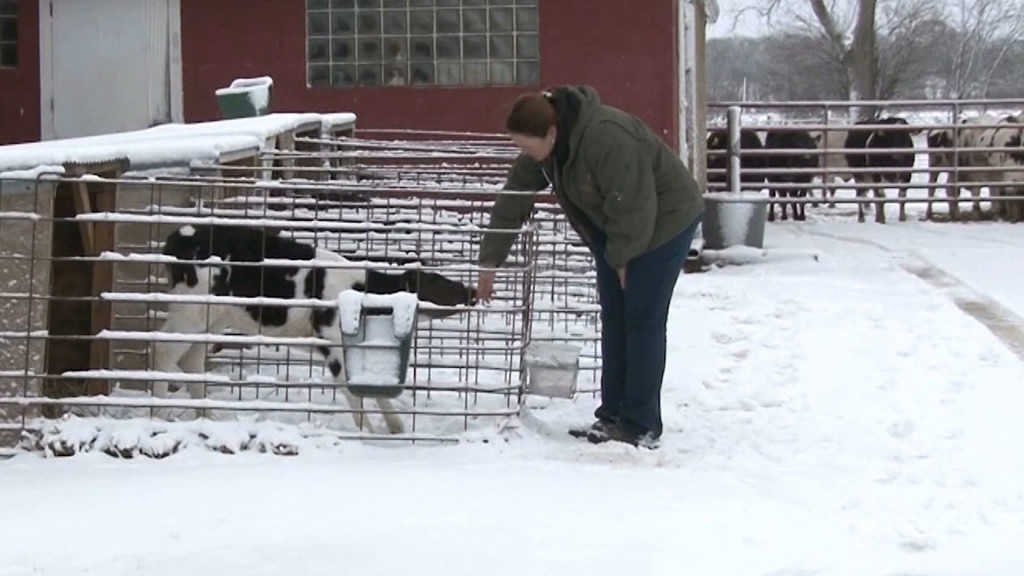
Business
10:41, 29-Jan-2018
US farmers on edge as NAFTA negotiations show little progress
By CGTN’s Dan Williams

There has been little progress and no breakthroughs in the six-round North American Free Trade Agreement (NAFTA) negotiations, putting US farmers on edge.
The Aavang family in Woodstock, Illinois, has a farm with a history spanning over 150 years. Now the farm is faced with tight margins.
Like many, the Aavang family is on edge as the Trump administration threatens to withdraw from NAFTA.
"It would obviously curtail our exports. And that is just something we cannot afford at this time," Michele Aavang said. "Canada and Mexico are huge export markets for us. To have that pulled away would just be devastating."
In 2016, the US exported an estimated 43 billion US dollars worth of food and agricultural products to Mexico and Canada. A change in NAFTA could mean big changes for the US agricultural sector.
At a debate on the future of the trade impact, organized by global affairs think thank The Chicago Council, these concerns were on display.
"I think one of the great export success stories of the United States has been agriculture, and NAFTA was a very big part of that," Phil Levy, a Chicago Council senior fellow, said. "It has been a sector that has benefited immensely from past liberalization. And when that is called into question, they are put at risk."
Many US farmers have already felt a financial squeeze in recent years, with higher production costs and stagnation in commodity prices.
Carla Hills served as US Trade Representative in the George HW Bush administration. She was one of the architects of NAFTA, and believes that the importance of the agreement cannot be underestimated.
"Catastrophic. Just catastrophic for the workers and producers," she said.
"Certainly already, Mexico is looking for other sources. And once it establishes them, they are very unlikely to come back to an ally you can’t rely on. In fact, we might not be such a close ally anymore."
Many farmers said they are all for some modernization to NAFTA. But most agree that a withdrawal places a real question over their hopes for the future.

SITEMAP
Copyright © 2018 CGTN. Beijing ICP prepared NO.16065310-3
Copyright © 2018 CGTN. Beijing ICP prepared NO.16065310-3